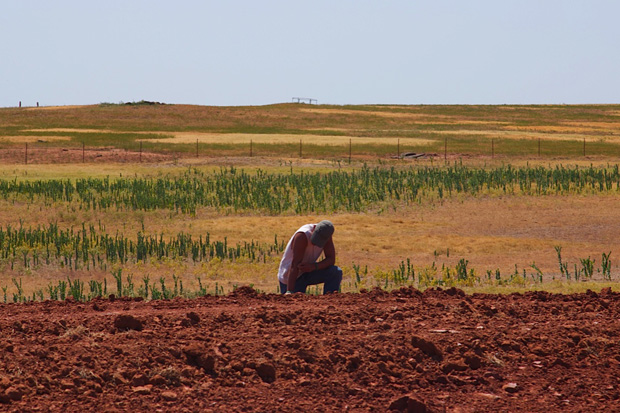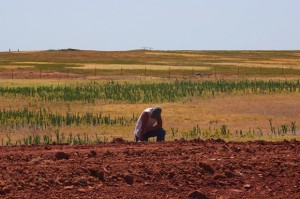
Oil Boom Keeping Western Oklahoma Towns Afloat Amid Worsening Drought
-
Logan Layden
Drought and agriculture don’t mix very well. So after three years of intense drought, you might expect rural western Oklahoma communities — where fortunes have traditionally hinged on the condition of wheat crops — to be dying on the vine.
But no. As The Journal Record‘s Brian Brus reports, many of these towns are adapting to a new economy with a little help from the oil and gas industry.
Elk City Chamber of Commerce Economic Development Director Jim Mason said his community has blossomed as it’s moved from agriculture to petroleum…
“The local grain elevator has closed down and our cotton gin is now gone. A lot of our agriculturally related businesses do seem off,” he said. “Drought has had a big impact, but it hasn’t devastated us.”
Mason told the paper local schools are struggling to keep up with enrollment, the housing market is booming and tourism is up, and it’s because “a lot of farmers have benefitted from mineral rights or wind farm development.”
The Journal Record also talked to Oklahoma State University agricultural economics professor Dave Shideler, who provides the hard evidence for what’s happening in Elk City and beyond.
For the 30 years preceding 2012, the biggest commodity shipped out of western Oklahoma by rail was wheat. Drought ended that trend and silos stood empty, he said.
Now sand is the No.1 commodity being brought in and the No. 1 commodity shipping out is oil, Shideler said.
“A lot of people started converting the ag infrastructure to support another industry instead: oil extraction,” he said. “Some grain silos started being used as sand storage for hydro-fracturing, for example.”
Shideler says the economic adaptation wouldn’t have been possible without oil and gas drilling and that some towns are actually better off now than before the drought. However, he says a currently unanswered question is: What happens when the water the petroleum industry relies on runs out?
After all, cattle and wheat need water, but drillers and their families need water, too.

